3 Day Advanced Mindfulness Certificate Course – Donald Altman
- Detailed demonstrations and hands-on instruction in over a dozen mindfulness practices
- Evidence-based approaches that shift attention, regulate emotion, and manage depression
- Address emotional pain with acceptance, forgiveness, and compassion
- Manage moods with interventions that impact clients’ attention
- Clinical implications of research exploring the relationship between chronic pain reduction and mindful awareness
In this comprehensive certificate course, international mindfulness teacher and best-selling author Donald Altman will share powerful clinical tools that will help you create a clear roadmap to wellness. From grounding and attention-focusing skills to metacognitive awareness, Donald will deliver detailed demonstrations and instruction on over a dozen mindfulness practices you can use to improve treatment outcomes.
Best of all, you will learn to embody mindfulness as you help your clients overcome clinical anxiety, depression, chronic pain, PTSD, addictive cravings, and stress related symptoms!
Watch Donald and learn to:
- Alter clients’ habitual and conditioned reactions to anxiety, chronic pain, and depression with practical evidence-based mindfulness techniques
- Apply mindfulness to pain and improve mental and physical functioning in your clients
- Reduce anxiety by mindfully managing transitions through movement
- Creatively adapt your newfound mindfulness tools to work with a variety of client populations
Donald is known for his compelling and entertaining presentations, and this recording will get you excited about using mindfulness with your clients. Return to your practice with a wide range of tools to use in your next session!
- Evaluate how understandable explanations of mindfulness’ impact on neurological processes involved in common mental health disorders can be used to promote engagement in treatment.
- Explore the effect of diaphragmatic breathing on the parasympathetic nervous system and communicate how mindful breathing techniques can be incorporated into therapy.
- Assess the latest research analyzing mindfulness, attention and depressive symptoms.
- Connect how clinical tools based in mindfulness and grounding can be used to impact the biological stress response in clients with trauma.
- Consider how treatment plans for depression can incorporate mindfulness interventions that clients can use to counter automatic patterns of thoughts.
- Communicate the clinical implications of research regarding the health benefits of nature and exposure to the natural world.
- Plan how mindfulness strategies focused on impacting the neural pathways associated with fear can be incorporated into treatment to help alleviate symptoms in anxious clients.
- Articulate how mindfulness techniques that impact the areas of the nervous system associated with stress can be used in clinical practice.
- Analyze the state of research on the use of mindfulness as an intervention for the management of chronic pain.
- Scrutinize how barriers to implementing mindfulness can be overcome using practical informal techniques clients can easily and naturally incorporate into their lives.
- Appraise the latest research on the efficacy of mindfulness as an approach to aid in relapse prevention for alcohol and substance use disorders.
- Characterize how clinical tools that increase self-awareness can be used in therapy to help clients better manage their thoughts, emotions and behaviors.
- Communicate how self-compassion and feelings of safety, trust and forgiveness impact the therapeutic process.
- Analyze the latest research regarding the biochemistry of laughter and the connection between laughter and mental and physical health.
- Evaluate research on gratitude, it’s impact on depressive symptoms, and how easy to implement gratitude exercises could be beneficial to clients.
- Assess how mindfulness’ ability to shift awareness can be used to positively impact relationships and help clients to recognize their strengths.
- Establish how mindfulness can be taught to clients as a skill they can employ to ease the anxiety associated with transitions.
- Evaluate the role of compassion in treating clients suffering from high levels of shame and self-criticism.
Get 3 Day Advanced Mindfulness Certificate Course of author Donald Altman
- Mindfulness and Cutting Edge Research
- Mindfulness as a metacognitive skill
- Negative effects of a wandering mind
- Breathing reduces rumination and anxiety
- Useful (and free) web resources
- Introduce Mindfulness to Your Clients
- Expand your mindfulness vocabulary
- Help clients understand mindfulness
- Find the right metaphor
- Using clients’ learning styles
- Practice: Getting into the Present Moment
- The Power of Sense Grounding
- Anxiety reduction with sense grounding
- Mindfulness for transitioning between activities
- Physical grounding method of dropping into the body
- Integrate progressive muscle relaxation
- Good for spatial, visual, hands-on learning styles
- Practice: Palm the Present Moment
- Brain Basics, Metacognition, and Interpersonal
- Neurobiology
- Emotional regulation for depression and anxiety
- Balance the brain’s default survival mode
- Effects of cortisol on learning and immune system
- Visual Brain Model for clients
- The brain’s mindfulness module
- Train the brain for calm response and metacognition
- Navy Seals, arousal control & parasympathetic nervous system
- Heart rate variability & relaxation response
- Practice: The Power of Breath
- Practice: Ask Clients the 3-Minute Question
- The Behavioral Side of Mindfulness
- Core lifestyle skills awareness training
- Sleep hygiene
- Manage sleep
- Sleep rituals and strategies
- Healthy eating/nutrition
- Caffeine, protein, neurotransmitters, and the brain
- Exercise
- Manage technology – How weapons of mass distraction may be rewiring the brain
- Practice: Assessment of Technology and Time
- Focus the mind (useful for ADHD)
- Integrate breath with a word/image
- Practice: Be the Pebble
- Mindful Laughter for Depression and Grief
- Tools for the ”terminally serious”
- Research on laughter and mood
- Biochemistry of laughter & human laughter response
- Laughter yoga and laughter in therapy
- Practice: The Lightness of Laughter
- The Uplifting Power of Storytelling
- Storytelling to overcome depression and build relationships
- Fredrickson’s Broaden and Build Theory of Positive
- Emotions
- Broaden attention; find resilience
- Stories are fundamental to attachment
- Build relationships through a story of strengths
- Practice: Identifying Strengths & Strengths Journal
- Manage Moods through Attention and Selective Memory
- Master attention and memories
- Savoring of the present moment
- Practice: Here and Now Pleasantness
- Use selective memory to savor the past and future
- Practice: Savoring Success: Past, Present, and Future
- Harnessing Gratitude to Increase Positive Emotions
- Manage depression with gratitude
- Gratitude research
- Four psychological reasons for gratitude
- Techniques that make gratitude interpersonal and enhance supportive social networks
- Practice: The G.L.A.D. Technique
- Heal Emotional Pain through Acceptance, Forgiveness, and Compassion
- Forgiveness for moving forward from trauma
- Forgiveness is a skill
- Research on compassion practice
- Changes in brain function
- Security priming for feelings of safety and trust
- Develop positive emotions and resources
- Practice: Loving-Kindness Affirmation
- The Truth About Stress
- Biological markers of stress: Telomeres and aging
- Identify and assess client stress levels
- Perceived Stress Scale
- Epstein Stress-Management Inventory
- Practice: Be a Smart Stress-Avoider
- Mindfulness for Addictive Cravings
- Emotional regulation for cravings
- Impulse control and craving control using grounding
- Practice: S-T-O-P Grounding Technique
- Change the Perception of Pain Mindfulness for Chronic Pain
- Introduction to the Body Scan Practice
- Demonstrate how to pay attention non-judgmentally
- Powerful grounding method; applications
- Practice: Surf the Body (The Body Scan)
- The Power of Sense Grounding Trauma
- Constructively distance from PTSD and negativity
- Three kinds of sense grounding
- Practice: Focusing on Favorites
- Reduce Anxiety by Mindfully Managing Transitions
- Manage transitions through movement and nature
- Process orientation vs. outcome orientation
- Attention Restoration Theory
- Effects of nature on focus, moods, & healing
- Slow down with nature to get present
- Integrated Tools
- Practice: Ground-Surfing (Mindful Walking)
- Practice: Turning Down the Volume with Nature
- Re-Envision and Refocus
- Working with difficult, unresolved life situations
- Metacognition as a path to insight
- Practice: Bear Meditation
- Put It All Together
- Create a mindfulness roadmap for clients
- Bundling practices together
- Engage through learning styles
- Maintain skills
- Follow-up and reinforcement
- Research limitations and the potential risks of mindfulness in treatment
Get 3 Day Advanced Mindfulness Certificate Course of author Donald Altman
Get Instant Download 3 Day Advanced Mindfulness Certificate Course – Donald Altman at Offimc.click Now!
Sale page_https://catalog.pesi.com/item/54223/
Archive: https://archive.fo/0uWFT
Delivery Information
- Upon ordering the product, a delivery email with download instructions will be sent immediately to you so that you may download your files. If you log in (or create an account) prior to purchase you will also be able to access your downloads from your account dashboard.
- It is a digital download, so please download the order items and save them to your hard drive. In case the link is broken for any reason, please contact us and we will resend the new download link to you.
- If you don't receive the download link, please don’t worry about that. We will update and notify you as soon as possible from 8:00 AM – 8:00 PM (UTC+8).
- Please Contact Us if there are any further questions or concerns you may have. We are always happy to assist!



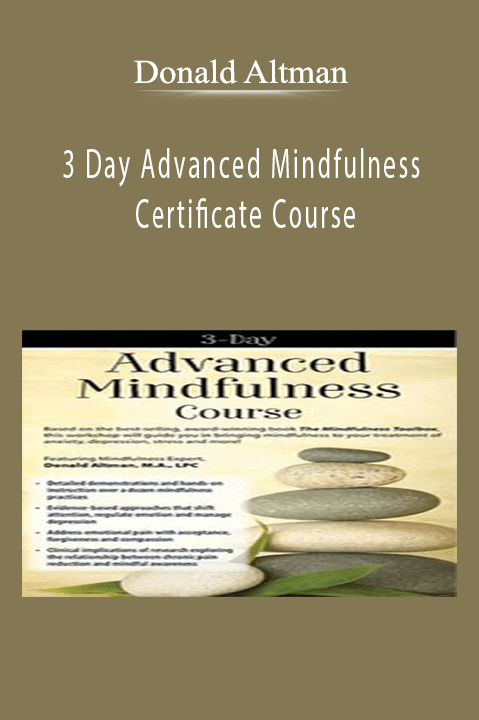
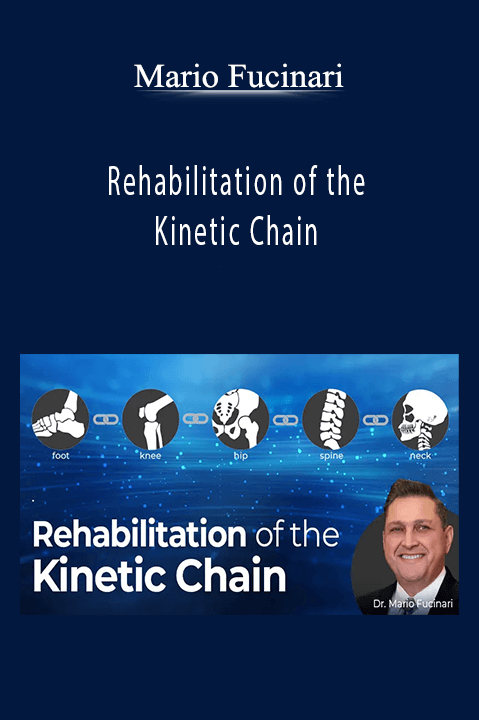


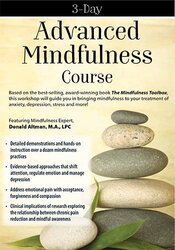
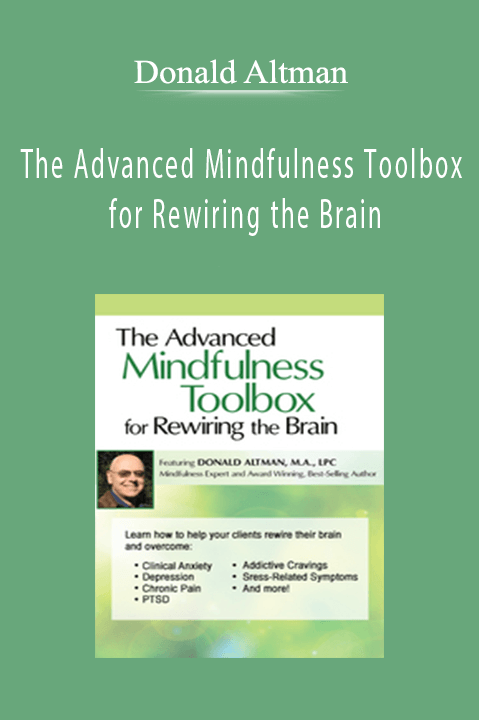
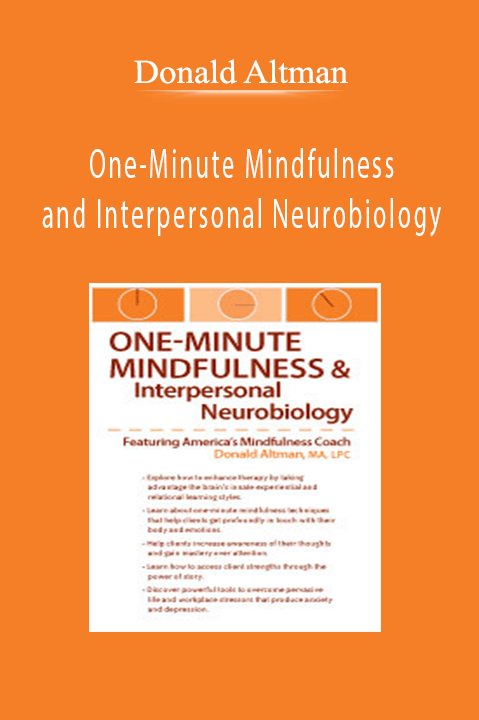
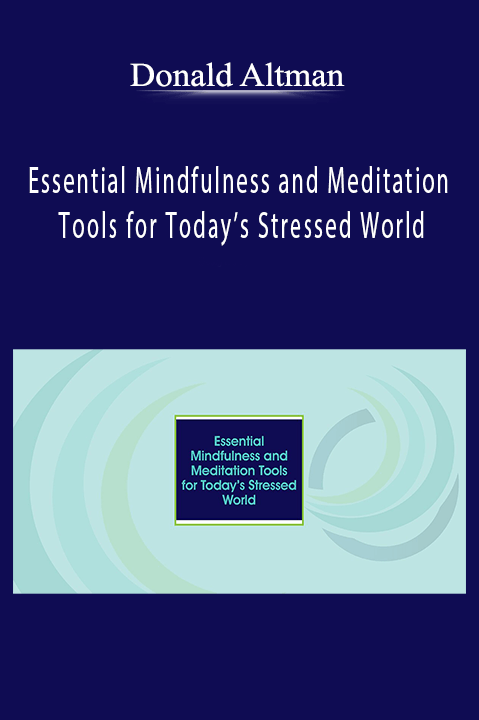
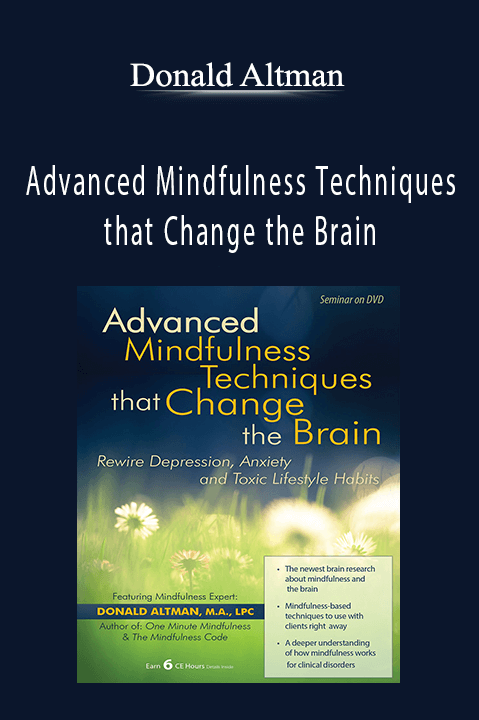
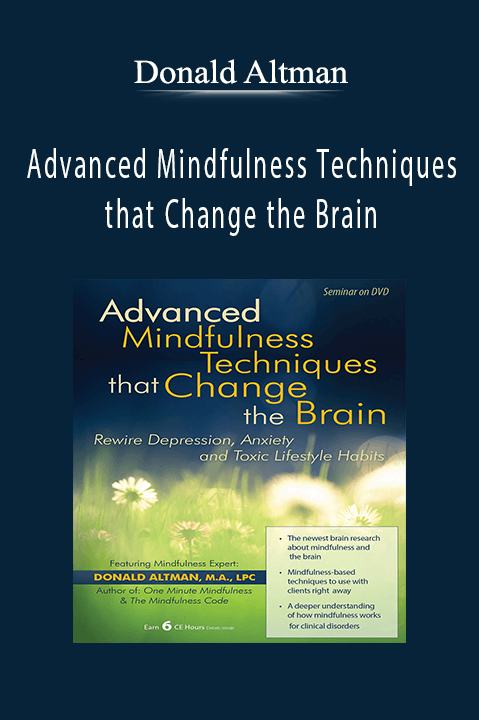
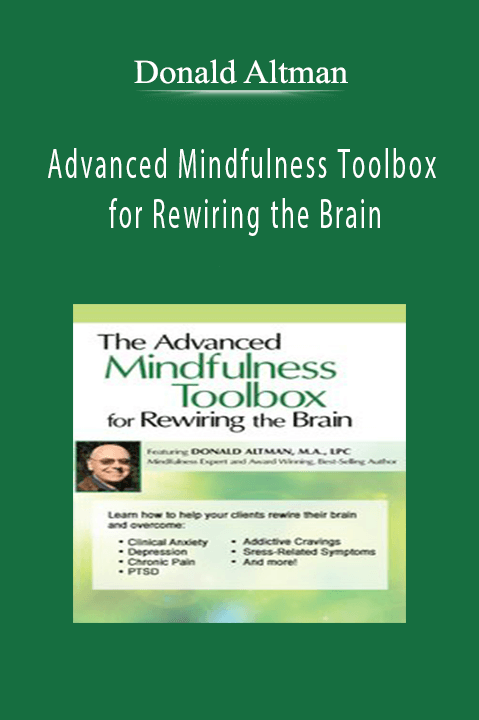
8 reviews for Donald Altman – 3 Day Advanced Mindfulness Certificate Course
There are no reviews yet.